第97章 POITIERS(5)
Gradually the English drove back their foes.The French forces became cut up into groups or confined into narrow spaces.Knight after knight fell around the king.De Ribaumont fell near him.Jeffrey de Charny, who, as one of the most valiant knights in the army, had been chosen to bear the French standard, the oriflamme, never left his sovereign's side, and as long as the sacred banner floated over his head John would not believe the day was lost.At length, however, Jeffrey de Charny was killed, and the oriflamme fell.John, surrounded on every side by foes who pressed forward to make him prisoner, still kept clear the space immediately around himself and his little son with his battle-axe; but at last he saw that further resistance would only entail the death of both, and he then surrendered to Denis de Montbec, a knight of Artois.
The battle was now virtually over.The French banners and pennons had disappeared, and nothing was seen save the dead and dying, groups of prisoners, and parties of fugitives flying over the country.Chandos now advised the prince to halt.His banner was pitched on the summit of a little mound.The trumpets blew to recall the army from the pursuit, and the prince, taking off his helmet, drank with the little body of knights who accompanied him some wine brought from his former encampment.
The two marshals of the English army, the Earls of Warwick and Suffolk, were among the first to return at the call of the trumpet.Hearing that King John had certainly not left the field of battle, though they knew not whether he was dead or taken, the prince at once despatched the Earl of Warwick and Lord Cobham to find and protect him if still alive.They soon came upon a mass of men-at-arms, seemingly engaged in an angry quarrel.On riding up they found that the object of strife was the King of France, who had been snatched from the hands of Montbec, and was being claimed by a score of men as his prisoner.The Earl of Warwick and Lord Cobham instantly made their way through the mass, and dismounting, saluted the captive monarch with the deepest reverence, and keeping back the multitude led him to the Prince of Wales.The latter bent his knee before the king, and calling for wine, presented the cup with his own hands to the unfortunate monarch.
The battle was over by noon, but it was evening before all the pursuing parties returned, and the result of the victory was then fully known.With less than 8000 men the English had conquered far more than 60,000.On the English side 2000 men-at-arms and 1500 archers had fallen.Upon the French side 11,000 men- at-arms, besides an immense number of footmen, had been killed.A king, a prince, an archbishop, 13 counts, 66 barons, and more than 2000 knights were prisoners in the hands of the English, with a number of other soldiers, who raised the number of captives to double that of their conquerors.All the baggage of the French army was taken, and as the barons of France had marched to the field feeling certain of victory, and the rich armour of the prisoners became immediately the property of the captors, immense stores of valuable ornaments of all kinds, especially jewelled baldrics, enriched the meanest soldier among the conquerors.
The helmet which the French king had worn, which bore a small coronet of gold beneath the crest, was delivered to the Prince of Wales, who sent it off at once to his father as the best trophy of the battle he could offer him.
Its receipt was the first intimation which Edward III received of the great victory.
As the prince had no means of providing for the immense number of prisoners, the greater portion were set at liberty upon their taking an oath to present themselves at Bordeaux by the ensuing Christmas in order either to pay the ransom appointed, or to again yield themselves as prisoners.
Immediately the battle was over, Edward sent for the gallant Sir James Audley, who was brought to him on his litter by his esquires, and the prince, after warmly congratulating him on the honour that he had that day won as the bravest knight in the army, assigned him an annuity of five hundred marks a year.
No sooner was Audley taken to his own tent than he called round him several of his nearest relations and friends, and then and there made over to his four gallant attendants, without power of recall, the gift which the prince had bestowed upon him.The prince was not to be outdone, however, in liberality, and on hearing that Audley had assigned his present to the brave men who had so gallantly supported him in the fight, he presented Sir James with another annuity of six hundred marks a year.